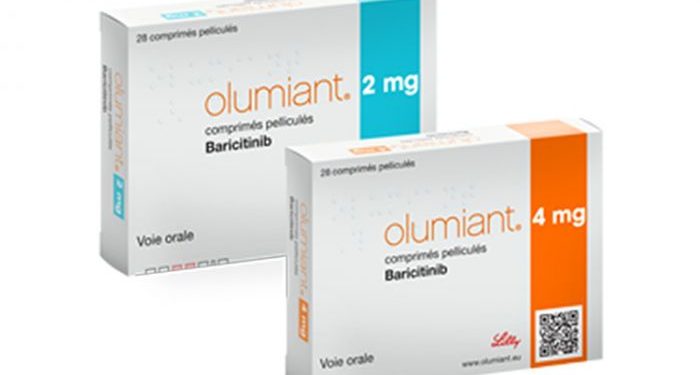London: A drug used to treat joint inflammation can be repurposed to treat patients with COVID-19. This has been said in a research study. The study says that the drug may lead to a new treatment option for the deadly COVID-19 disease.
Opinions shared in the study
Researchers, including those from Imperial College London in the United Kingdom (UK) have made the revelations. They noted ‘baricitinib’ is an oral drug used for treatment of adult patients with moderate to severe rheumatoid arthritis. It is a chronic inflammatory disorder which affects the joints, causing pain and stiffness. They feel the drug may lower inflammation and the quantity of the virus particles present in patients with COVID-19. The study has been published in the journal ‘EMBO Molecular Medicine’.
Using AI-algorithms, the scientists identified existing drugs capable of blocking both inflammation and infectivity. They found ‘baricitinib’ to be a promising repurposing candidate for COVID-19. They said the drug acts as an inhibitor of ‘janus kinase’. It is a type of molecule in the body that acts as an ‘on’ or ‘off’ switch in many cellular functions.
This is how Baricitinib works
‘Baricitinib’ interferes with the inflammatory processes of the immune system. So it may be a potential treatment candidate for COVID-19, the study noted. The drug has also previously demonstrated ability to inhibit the activity of cell-cell messenger molecules called cytokines.
In test tube studies, and in miniature liver models, the scientists showed that the drug inhibited signalling of cytokines. In severe COVID-19 cases cytokines overreact and drive inflammation
According to the study, ‘baricitinib’ also helped reduce the quantity of the novel coronavirus in infected cells. It also decreases the level of the signal molecule interleukin-6 (IL-6).
Pilot study
For the pilot study of the drug in Italy three men and one woman with COVID-19 were chosen. All four patients showed improvements in signs and symptoms such as cough, fever. They demonstrated reductions in quantity of virus particles and blood IL-6 levels after 10-12 days of treatment, the study said.
“Collectively, these data suggest that baricitinib may lower inflammation and viral load in COVID-19, said Ali Mirazimi. He is a co-author of the study from ‘Karolinska Institutet’ in Sweden.
More trials underway
More trials of baricitinib are currently underway in 85 hospitalised COVID-19 patients across three hospitals in Italy. The trials are providing ‘encouraging initial results in patient outcomes’.
“We are integrating and carefully analysing these trial data. Then we are doing the mechanistic follow-up studies to scrutinise baricitinib’s mode of action,” said Volker Lauschke. He is another co-author of the study from Karolinska Institutet.







































